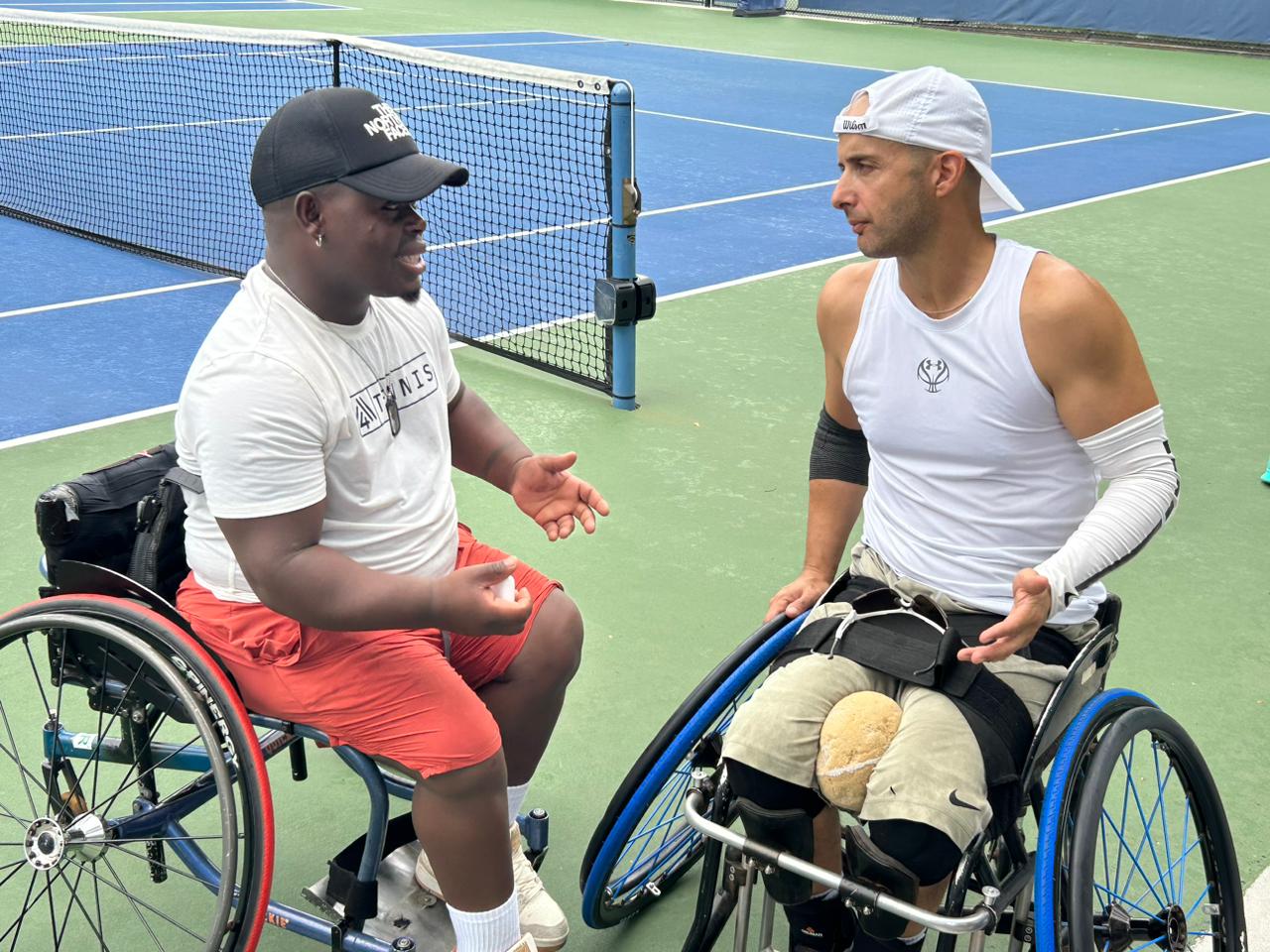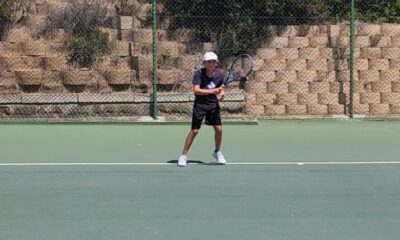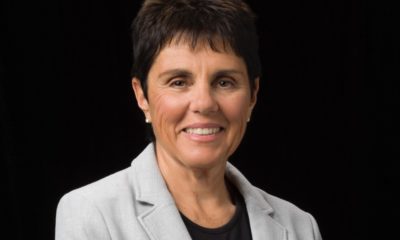
Sport

Israel-SA tennis partners a hit at Australian Open
South African Donald Ramphadi and Israeli Guy Sasson almost achieved perfection without much practice at the prestigious Australian Open tennis tournament last week.
They had barely trained together as doubles partners before the competition in Melbourne, but they surpassed their expectations by getting to the final of the men’s wheelchair quad-doubles event.
The tournament marked the duo’s first matches as doubles partners. They beat a Turk and Slovakian in the quarterfinal stage before a walkover against the top seeds in the semifinal resulted in them being pitted against eight-time major champions Andy Lapthorne from Britain and American David Wagner in the final on 26 January.
“We didn’t really expect too much, and for us to get to the final, it’s actually a good result. We’re happy with it,” says South African-based Ramphadi, who has brittle bone disease which causes his bones to break easily and take longer to recover than normal bones.
The 30-year-old described the 6-4 3-6 10-2 defeat in the final as “painful”.
“In our heads, we knew it was possible. We felt like we were so close to grabbing the title and at the end of the day, it didn’t go like that. At the same time, the mind says, ‘You guys did exceptionally well to get this far in the first time you played together.’”
Ramphadi and American-based Sasson never discussed South Africa’s relationship with Israel. “But Siya, my coach, talked about that when we were going to play the final,” Ramphadi recalls. “I didn’t even know about it until he told me that South Africa and Israel weren’t on good terms. He was worried that if we won, people would come at us.
“Guy is a great player. He just got into the quad division, and he’s been doing well from the start.”
When Ramphadi was looking for a new doubles partner last year, he saw Sasson and approached him. “We agreed that we were going to start the year together.”
Ahead of the Open, they told each other, “It’s our first time together. Let’s just go out there and showcase our talent and also not forget to enjoy it and see where it takes us.”
They did exactly that. “We just need to work on a whole lot of things so that when we’re playing, we understand each other’s language without even saying a word,” Ramphadi says. “When you play doubles with someone, you need time to get to know them, but looking forward, I see us doing well.”
They are going to compete together in Korea and Japan.
Ramphadi, who was knocked out in the semifinals with a Brazilian partner against Lapthorne and Wagner at last year’s Australian Open, says his experience of this year’s tournament was similar except for there being 16 players instead of eight this time around.
In the second set of this year’s final, “Ramphadi looked to be enjoying himself out on court, showcasing the skills that took him and Lapthorne to the Roland Garros title last year,” the Lawn Tennis Association noted. Victory would have meant Ramphadi’s second Grand Slam title in the quad-doubles division. In the singles quad category event at the Open, he reached the semis.
Ramphadi was born without a disability. “I used to be an active kid, and I was playing soccer with the elders so you would find me the youngest in the field. I was that competitive.
“At the age of 12, I got sick with a bone sickness, but I didn’t know what it was exactly because my mother didn’t have money to take me to a better hospital. I was going to a public hospital and doctors were saying different things. There was a point where they gave me Bone TB [tuberculosis] pills, which I had to take for a year, only to find out later that I wasn’t actually affected by Bone TB. After that, they took me to a special school for students with a disability.
“During the time I was sick, my desire to compete faded away because I hadn’t been as active as I was before. I felt that feeling leaving my body. That was the saddest moment.”
Ramphadi never thought he would play tennis, a predominantly white sport while he was growing up, but a development officer from Tennis South Africa came to his school one day and said they were looking for wheelchair tennis players.
“I was bored. I didn’t have anything to do. I just went to go and try out to see what’s up. I was told that I had talent, which I didn’t really understand. Then, my teachers Mam Mboweni and Mam Shikwambana from Letaba Special School, monitored me in playing tennis. As time went on, they started taking me to camps where you played matches.”
Ramphadi won at his first camp. “That’s when I felt the feeling of competition coming back into my body. I realised I wanted to do this for the rest of my life.”
Ramphadi says he has no complaints about being a wheelchair tennis player. “We’re happy with the coverage we get. Hopefully in the future they will televise us more so that a lot of people will see us in world championships and know that having a disability doesn’t mean we can’t compete.”










